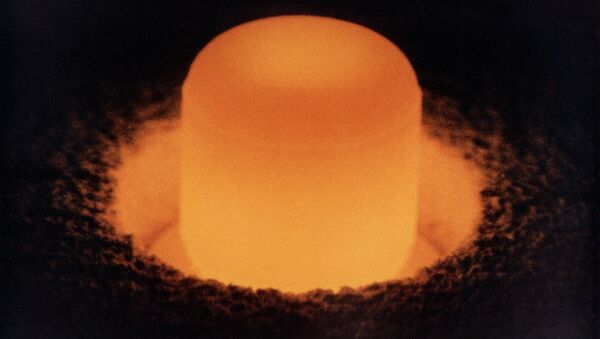WASHINGTON (Sputnik), Leandra Bernstein — Moscow’s decision to cancel the US-Russia Plutonium Management and Disposition Agreement, which is aimed at reducing stockpiles of weapons-grade plutonium, will not hurt the goal of nuclear nonproliferation, Nuclear Watch New Mexico Executive Director Jay Coghlan told Sputnik.
“It's significant, but not catastrophic,” Coghlan said on Wednesday. “I still think that both countries will eventually dispose of the excess plutonium. But I cynically add that this is only because…both countries already have too much plutonium for their weapons, so they don't really care.”
On Monday, Russia announced the end of its agreement with the United States, citing hostile actions by Washington.
The US Department of State said it was “disappointed” by Russia’s withdrawal from the pact.
Coghlan expressed skepticism that any significant nonproliferation goals would have been met under the agreement.
“The US has more than enough plutonium to do what it wants with nuclear weapons on into the indefinite future,” he said.
Because the agreement calls for converting weapons-grade plutonium into a mixed oxide (MOX) fuel to be used for civilian nuclear power, Russia could continue producing plutonium, Coghlan argued.
“Russian use of MOX in breeder reactors could produce additional plutonium, depending on how the reactors are configured,” he stated.
The pact was signed in 2000 with both countries agreeing to dispose of at least 34 metric tons of weapons-grade plutonium, enough to build 17,000 nuclear bombs.




